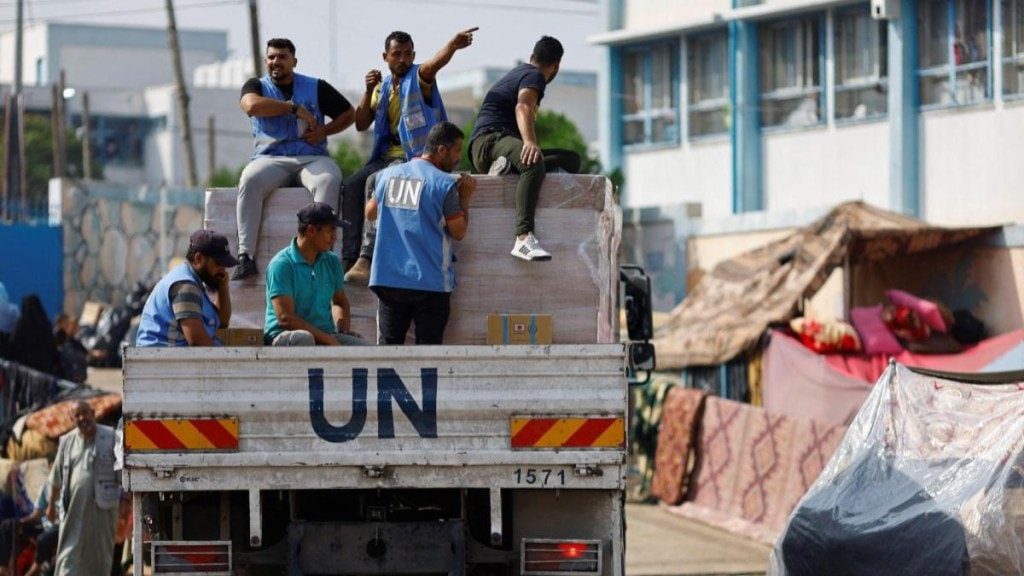The ongoing conflict between Israel and Hamas has significantly disrupted humanitarian efforts in the Gaza Strip, with the United Nations Relief and Works Agency (UNRWA) suspending its aid shipments due to widespread looting of supplies. The looting, primarily carried out by armed gangs, has targeted convoys of relief material meant for Palestinian civilians, exacerbating an already severe humanitarian crisis in the region.
UNRWA, the primary agency providing essential services and supplies to Palestinians, has been using the Kerem Shalom crossing as its main route for delivering aid into Gaza. However, the route, which lies at the border between Israel and Gaza, has become increasingly dangerous. Armed gangs have been intercepting and looting UN shipments, with reports indicating that over 100 trucks carrying vital supplies were looted in mid-November. In a recent statement, UNRWA’s head, Philippe Lazzarini, expressed concerns about the deteriorating security conditions at the crossing, noting that these acts of theft are hindering the agency’s ability to provide critical aid to those in need.
Kerem Shalom is the only functional crossing between Israel and Gaza that is designated for transporting goods. Following the closure of the Rafah border crossing with Egypt in May, it has become the primary lifeline for humanitarian aid. Yet, the combination of ongoing military actions on the Israeli side and the growing presence of armed robbers on the Gaza side has made the passage increasingly treacherous. Despite this, Gaza’s population remains highly dependent on international relief, making the current halt in aid supplies a grave setback.
UNRWA has pointed to Israel’s policies as a contributing factor to the growing lawlessness in the area. The agency has blamed Israel’s military operations and restrictions on the movement of goods for destabilizing the region, which has allowed armed groups to operate with relative impunity. While these actions have impeded the delivery of humanitarian aid, Lazzarini also underscored the need for a more secure environment to ensure that life-saving supplies reach their intended recipients.
Israel, however, has strongly contested UNRWA’s operations. The Israeli government has accused the agency of collaborating with Hamas, claiming that some of its employees have links to the militant group. In response to these allegations, Israel passed a resolution in late October banning UNRWA’s operations in Gaza, accusing the agency of contributing to regional instability. The Israeli parliament also moved to sever diplomatic ties with the organization, and it has pressured international donors, including the United States, to reduce funding to UNRWA.
Despite these tensions, UNRWA continues to maintain that its work remains strictly humanitarian, with no political motives, and that its staff members are committed to serving the civilian population in Gaza. The impasse between the Israeli government and UNRWA underscores the broader challenges faced by humanitarian organizations in conflict zones, where political and military dynamics often hinder relief efforts.
As the conflict rages on, the humanitarian situation in Gaza grows more dire, with the suspension of UN relief shipments further exacerbating the suffering of those caught in the crossfire. The international community remains under pressure to find solutions that ensure aid can reach those in need, despite the ongoing security and political challenges.
